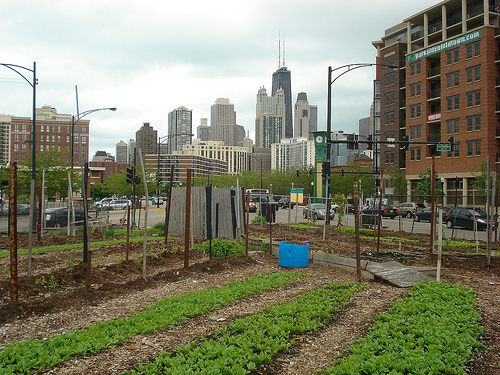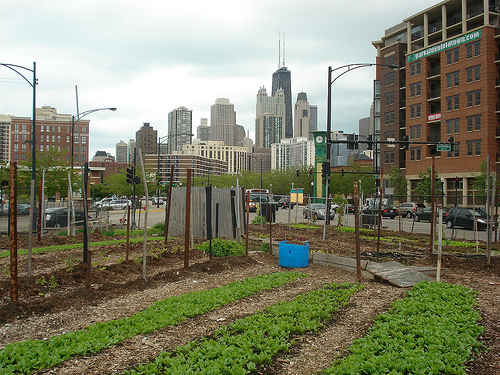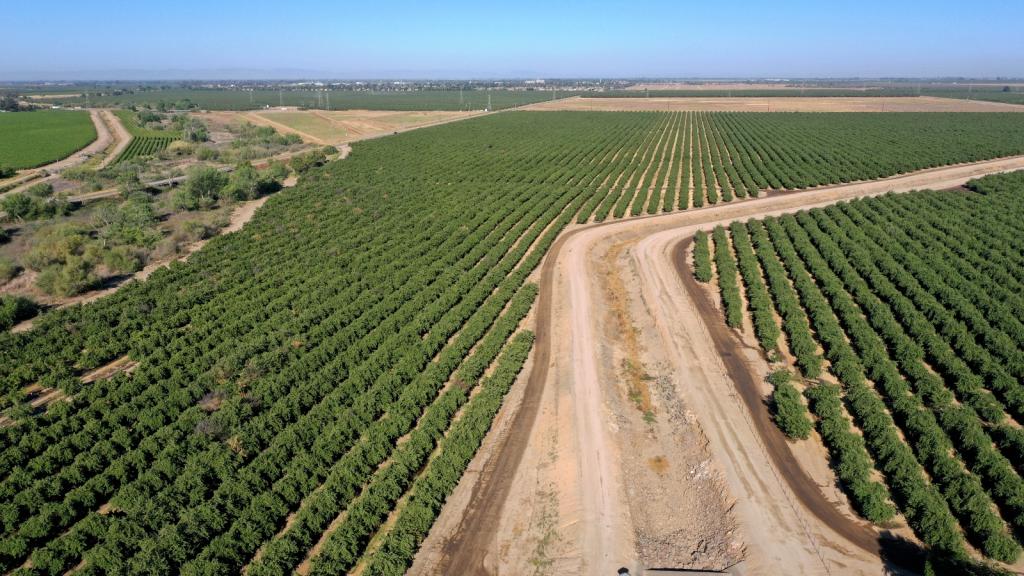
Now that Chicago residents can grow and sell food within the city, views like this might become a little more common. (Photo by Piush Dahal.)
Progressives don’t have much love for former Obama Chief of Staff Rahm Emmanuel. He’s been blamed for weakening health-care reform, killing the climate bill’s chances, and generally pushing Obama to the center (and Oh, the profanity!)
But Mayor of Chicago Rahm Emmanuel? He seems to be giving progressives, particularly food progressives, a bit more to chew on. He’s committed to addressing the city’s many food deserts (although perhaps with too much help from Walmart). Chicago public schools continue to find creative ways to improve school food. And significantly, when Emmanuel came into office, he declared that he would end restrictions on urban agriculture, which the city zoning laws had in a legal gray zone.
Earlier this month, thanks to Emmanuel’s backing, the Chicago City Council passed an ordinance officially legalizing urban ag and allowing growers to sell what they produce. It’s the latest in a series of ag-friendly zoning changes taking place around the U.S. — in cities like San Francisco, Kansas City, and Seattle.
Erika Allen, head of the Chicago branch of her father Will Allen’s urban agriculture organization Growing Power, explained the importance of the new law to Crain’s Chicago Business magazine:
It legitimizes urban agriculture as an enterprise or a business that hasn’t been on the books before. Chicago always had farms within the city limits, but the new ordinance creates a space where we can begin to create economic opportunities within our communities, especially in areas where food deserts are a direct result of unemployment and little economic opportunity.
These policies are needed so we can legally operate urban farms and community gardens with parameters around where they can and can’t be located. I’ve been in a leadership role in the Chicago Food Policy Advisory Council since 2001, and I can tell you that you don’t know there are barriers to urban farming unless you’re trying to operate a business where there’s a need in the community.
I love the argument extolling the benefits of pulling urban ag out from the gray market economy and increasing the tax base while creating jobs. And you get stuff to eat, too! Bonus!
Seriously, though, Grist has followed the odd opposition some town and city planners have against food growing. So it’s good to see America’s Second City embracing it.
One of the first business to take advantage of the new law was Chicago’s O’Hare airport [okay, not really — the garden is indoors]. Chicago’s Department of Aviation just announced [PDF via the Associated Press] the O’Hare Urban Garden, which is meant to highlight issues of sustainability and improve the quality of food at the airport. It’s an “aeroponic garden” that will supply several of the airport’s restaurants with fresh herbs and veggies and like Swiss chard, lettuce, peppers, and green beans.
Yes, gardens like this are mostly symbolic. But in this case, it’s a symbol that will be seen by millions of travelers. And that, combined with Chicago’s new official embrace of urban ag, might just convince more cities to follow suit.
[vodpod id=ExternalVideo.1011851&w=425&h=350&fv=]


